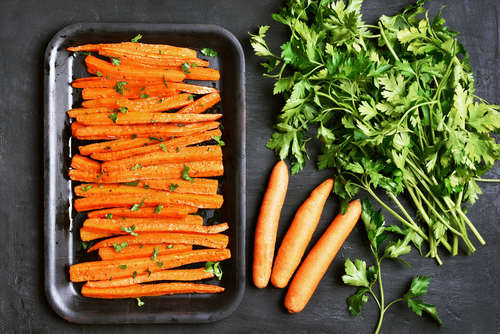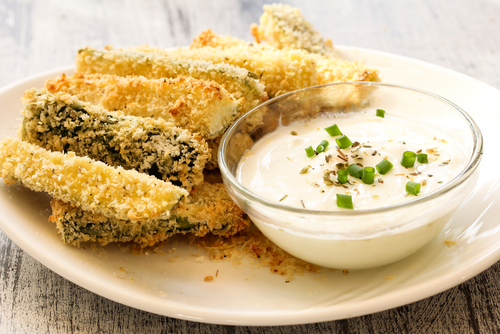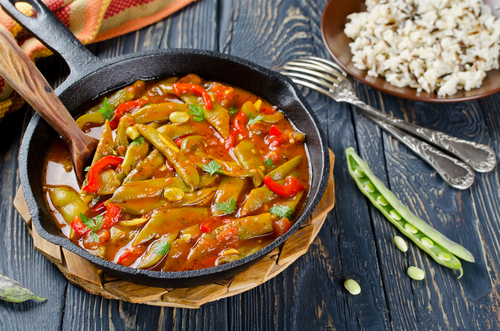We are what we eat. Nutrition and nourishment is the single most important thing – besides a loving family – in our life. The type of food we eat determines how healthy we are. Our health and vigor is determined by the quality of the food we eat and not the quantity. It also determines how strong in the body we become, the maximum growth that it can reach, and the joyfulness of our emotions. That is proven by the fact that in countries ridden by extreme poverty where a large percentage of the population is starving, the body sizes of the people are smaller and under grown. On the contrary in wealthier countries people look healthier, fitter, taller and more joyful.
As it is the quality of the food that decides how we feel in the mind and body, it is very important that we pay attention to what food we ingest. It is just like when we nourish the root of a sapling with good fertilizer, soil and water, it grows to its full size and depending on the type of plant or tree, it yields flowers, fruit or just a beautiful canopy for us to enjoy. It is the same with human beings as well. Our body is a chemical soup; so when we eat nutritious food every organ in the body down to the cells, gets what it needs to perform the necessary functions well. Eating high caloric junk foods and sugar snacks causes dullness, lethargy, lack of concentration, irritability and over a period leads to chronic ailments because the organs and cells are not getting the needed nutrition. The nutritional content of what we eat determines the composition of our cell membranes, bone marrow, blood, and hormones. Considering that the average adult loses and replaces roughly 300 billion cells everyday till death, our bodies are literally manufactured out of the food we consume.
Therefore the first thing to remember is that essentially, food is fuel. When you refuel your car, you choose the appropriate fuel for the type of machine you have, in order to achieve optimal performance. If you fill your petrol driven car with diesel, it would actually drive, but it may smoke and cough, and eventually it will corrode the engine. This is the situation with most people when it comes to their food choices. To choose the appropriate fuel, we need to know what type of machine we are.
It is best to listen to the body, rather than the tongue when it comes to eating. For example – A fruit digests within 1.5 to 3 hours. Cooked vegetables takes 12 – 15 hours to digest. Cooked cereals, legumes etc takes 24 – 30 hours. Cooked meat takes 48 – 50 hours to digest and raw meat takes 72 hours to digest. Considering that it is always summer in our body, when food remains in the system for such long periods of time, it will rot and cause unnecessary levels of bacteria. When food remains in the digestive track for prolonged periods, it becomes toxic and causes damage to the system.
Another way of looking at food is by its qualities or Gunas – Rajas, Tamas and Sattva. All processes of life are governed by these 3 gunas. Rajas pertains to active energy, Tamas pertains to laziness, lethargy and inertia, Sattva pertains to pure and subtle energies. The gunas are as present in humans as it is in all objects including food. These 3 gunas have be in proper balance for us to function optimally. Sattvic foods are fresh, natural, freshly cooked and lightly seasoned. It is a wholesome meal which consists of nourishing carbohydrates, proteins, vitamins, etc. Rajasic foods are very hot (spicy), bitter, dry or salty. Tamasic foods are over-processed, no longer fresh, and difficult to digest. If we consume too much quantity of tamasic food, it builds dullness, lethargy and inertia.
Try experimenting with various types of food and see how the body feels. For example, one day eat only fruits; next day eat only raw vegetables, and the following day, eat only cooked vegetables. And then the fourth day eat fish, meat etc. Observe with what kind of food you experience maximum levels of energy and alertness and increase those types of food in your diet.
Valuable eating tips for a health body and mind –
1) Each more fresh foods (fruits and raw vegetables). Substitute 30 – 50% of each meal with fresh fruits and salads.
2) Each more legumes, nuts and cereals.
3) Eat freshly cooked food.
4) Avoid snacking in between meals, so that food can exit the digestive track quickly.
5) Leave a minimum of 8 hour gap between meals.
Here are some simple and delicious recipes to tease your taste palette –
Roasted Carrot with Jaggery
Ingredients:
- 5 pounds carrot cut diagonally into 2 inch lengths and laved lenthwise
- 1 tbsp olive oil
- Coarse Salt and ground pepper
- 1 tbsp melted Jaggery ( Jaggery is naturally processed from the sap of sugar cane or palm trees, without the use of any chemicals. Because of this natural processing, jaggery retains all of its minerals. These include calcium, phosphorus, magnesium, potassium and iron and traces of zinc and copper
Directions: Preheat oven to 450 degress, On a rimmed baking tray, toss carrots with oil; season with salt and pepper. Roast, tossing once, until tender, 30 -45 minutes. Remove from oven and toss with jaggery.
Zucchini Fries

Ingredients:
- Olive of other oil to line the pan
- 1/4 cup whole wheat flour
- 2Tbsp cornmeal
- 1tsp sea salt
- 1/2 ground black pepper
- 3 medium zucchini, cut into 1/2 X 3-inch sticks
- 2 large egg whites, lightly beaten
Directions: Preheat oven to 475° F. Line baking sheet with foil; lightly coat with oil. Combine flour, cornmeal, salt, and pepper in a large re-sealable plastic bag; shake to combine. (Optional—add grated cheese of your choice to the mix.). Working with a few pieces at a time, dip zucchini in egg whites and lift out, letting excess drip back into bowl; drop zucchini into bag containing flour mixture. Seal bag and shake to coat. Repeat with remaining zucchini. Place zucchini on prepared baking sheet. Bake for 12 to 14 minutes, turning after 6 minutes, or until tender-crisp and golden brown.
Moroccan Vegetable Stew
Ingredients:
- 2 Tbsp olive oil
- 1 Cup Mushrooms, chopped
- Small Chunk minced ginger
- 1 large carrot, diced
- 1 large red pepper chopped
- 2 stalks celery, chopped
- 1/2 tsp ground cinnamon
- 1 tsp ground cumin
- 1/tsp ground oregano
- 1/tsp ground cayenne pepper to taste
- 1/tsp ground turmeric
- 1 to 1 1/2 cup vegetable stock
- 1 cup chopped tomato
- 2 cups cooked chickpeas (easily made the day before)
- 1/2 cup stoned black olives
- 1 Tbsp lemon juice
- Salt
- 1/2 cup chopped almonds
Directions: In a large frying pan, fry the ginger, mushrooms, zucchini, carrot, pepper and celery in the olive oil for 1 to 2 minutes. Add all the dry spices and stir fry for 1 minute more. Add the vegetable stock and the tomatoes, simmer for 2 – 3 minutes. Then add the chickpeas and olives, bring to a simmer, cover and cook until the zucchini is cooked, probably another 3-5 minutes. Add lemon juice, stir in the almonds and serve.
47 Most Famous Motivational Quotes of All-Time
49 Greatest Love Quotes
37 Inspirational Quotes that Will Change Your Life
































